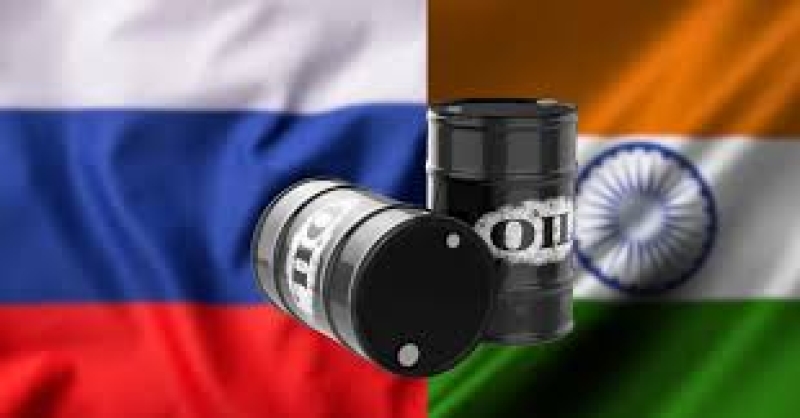- 3 killed in Uttara building fire; 13 rescued |
- Late-night deal ends standoff: BPL resumes Friday |
- Global Marine Protection Treaty Enters into Force |
- US Immigrant Visa Suspension Triggers Concern for Bangladesh |
- 29 arrested under Operation Devil Hunt Phase-2: DMP |
India to Keep Buying Russian Oil Despite Trump Tariff Threats

India has signaled that it will maintain its oil trade with Russia, brushing aside warnings from U.S. President Donald Trump about possible trade penalties.
At a regular press briefing on Friday, Indian foreign ministry spokesperson Randhir Jaiswal emphasized that India's energy policy is shaped by market availability and global conditions, not external pressure. He reaffirmed that India’s relationship with Russia is “steady and time-tested,” and should not be judged through the lens of any third country.
His remarks came in response to Trump’s recent announcement that the U.S. may impose a 25% tariff on Indian goods, along with additional import duties, as retaliation for New Delhi’s ongoing purchases of Russian crude oil.
The U.S. president, frustrated by Moscow’s refusal to agree to a ceasefire in Ukraine, has threatened fresh sanctions, raising concerns about secondary impacts on nations continuing to trade with Russia.
India’s imports of Russian oil have seen a dramatic surge since the Ukraine conflict began in February 2022. From just 68,000 barrels per day in January 2022, imports soared to 1.12 million barrels per day by June that year and peaked at 2.15 million in May 2023. At one point, Russian crude accounted for nearly 40% of India’s total oil imports, making Russia its top supplier, according to data cited by the Press Trust of India from analytics firm Kpler.
India consumes approximately 5.5 million barrels of oil daily, with about 88% of that demand met through imports. While the country traditionally relied on Middle Eastern suppliers, it shifted focus to discounted Russian crude following Western sanctions against Moscow.
India, the world’s third-largest oil importer after China and the U.S., has defended its procurement choices as a matter of national interest amid rising global energy prices and supply volatility, reports UNB.

